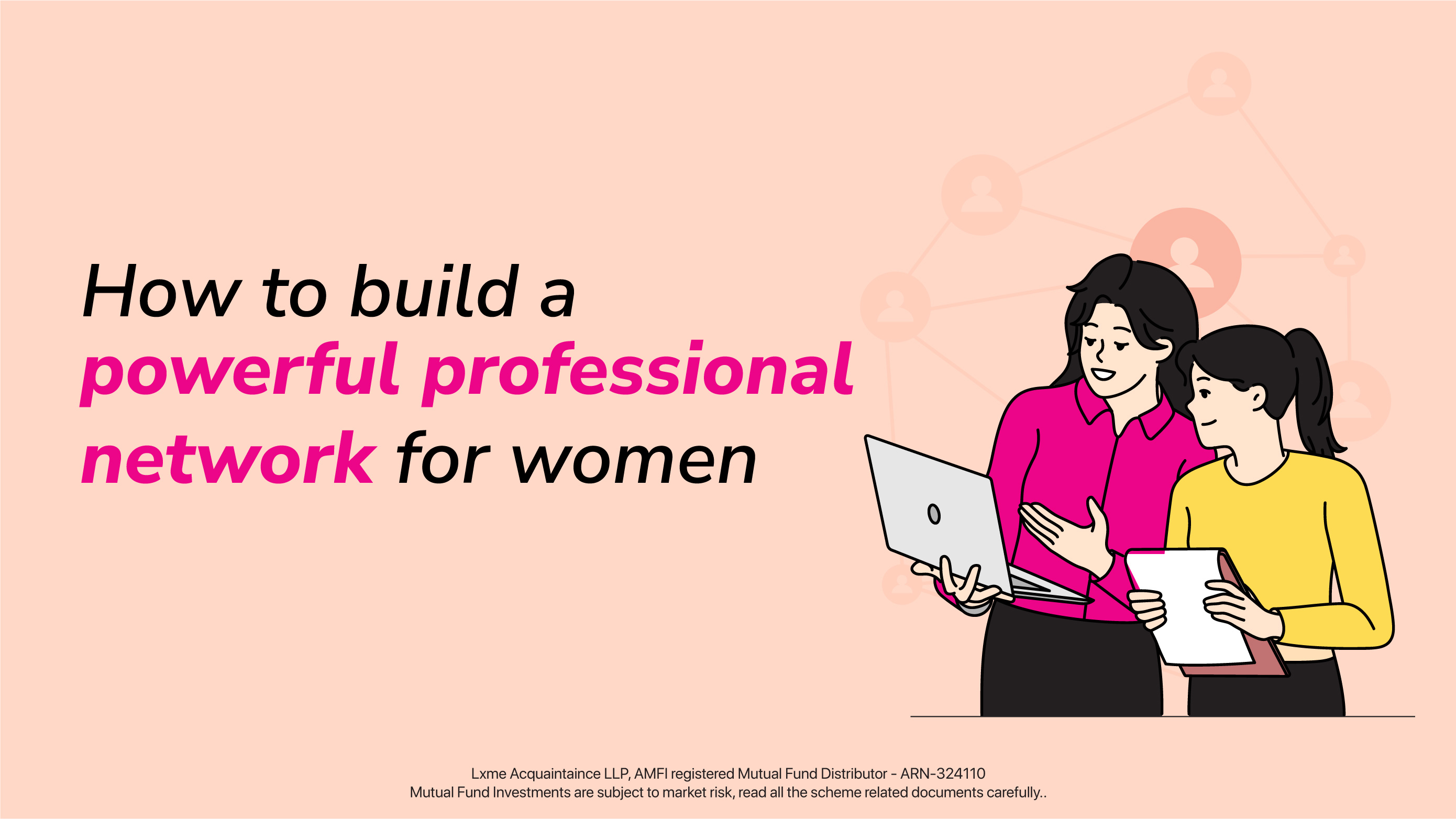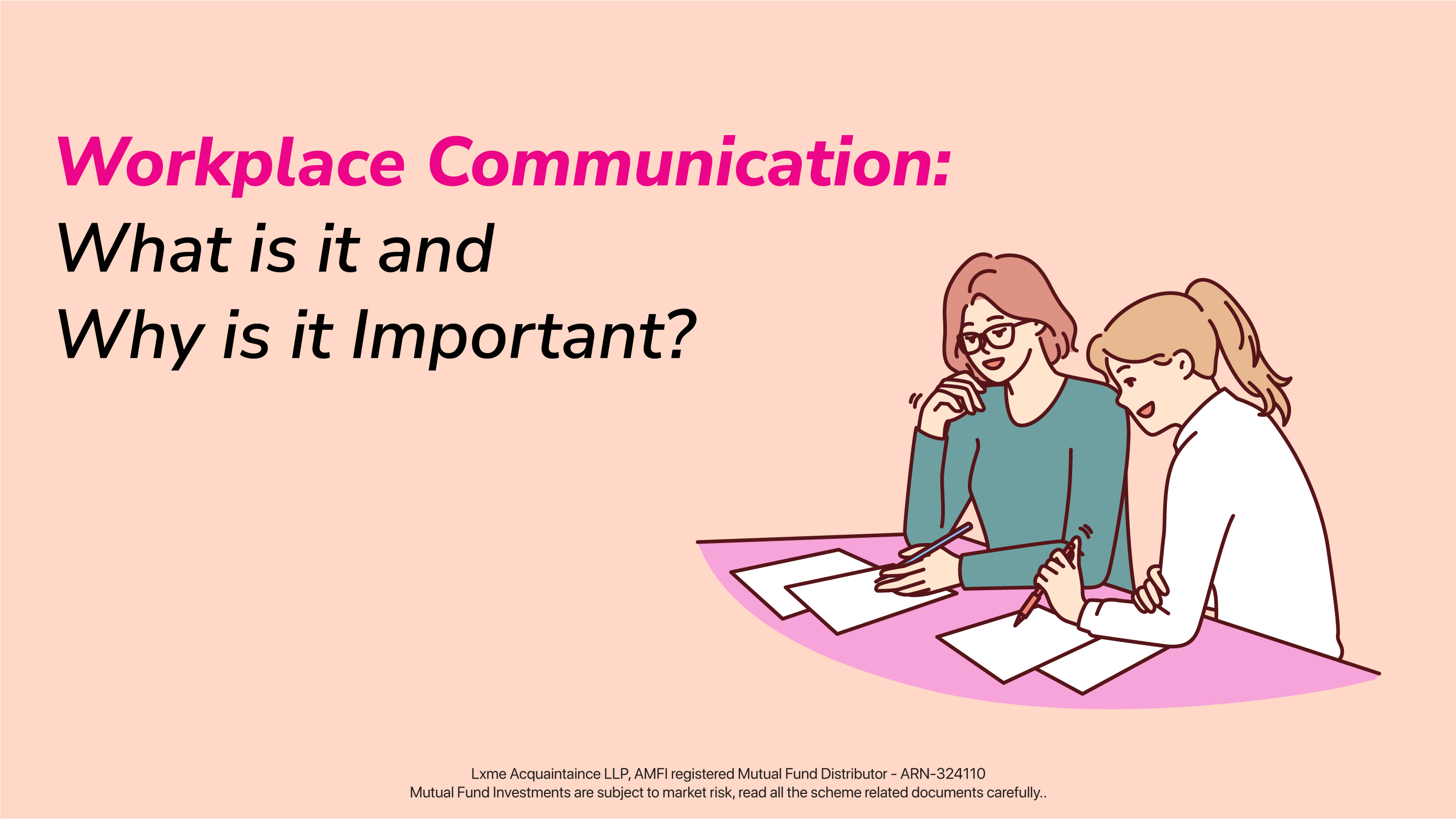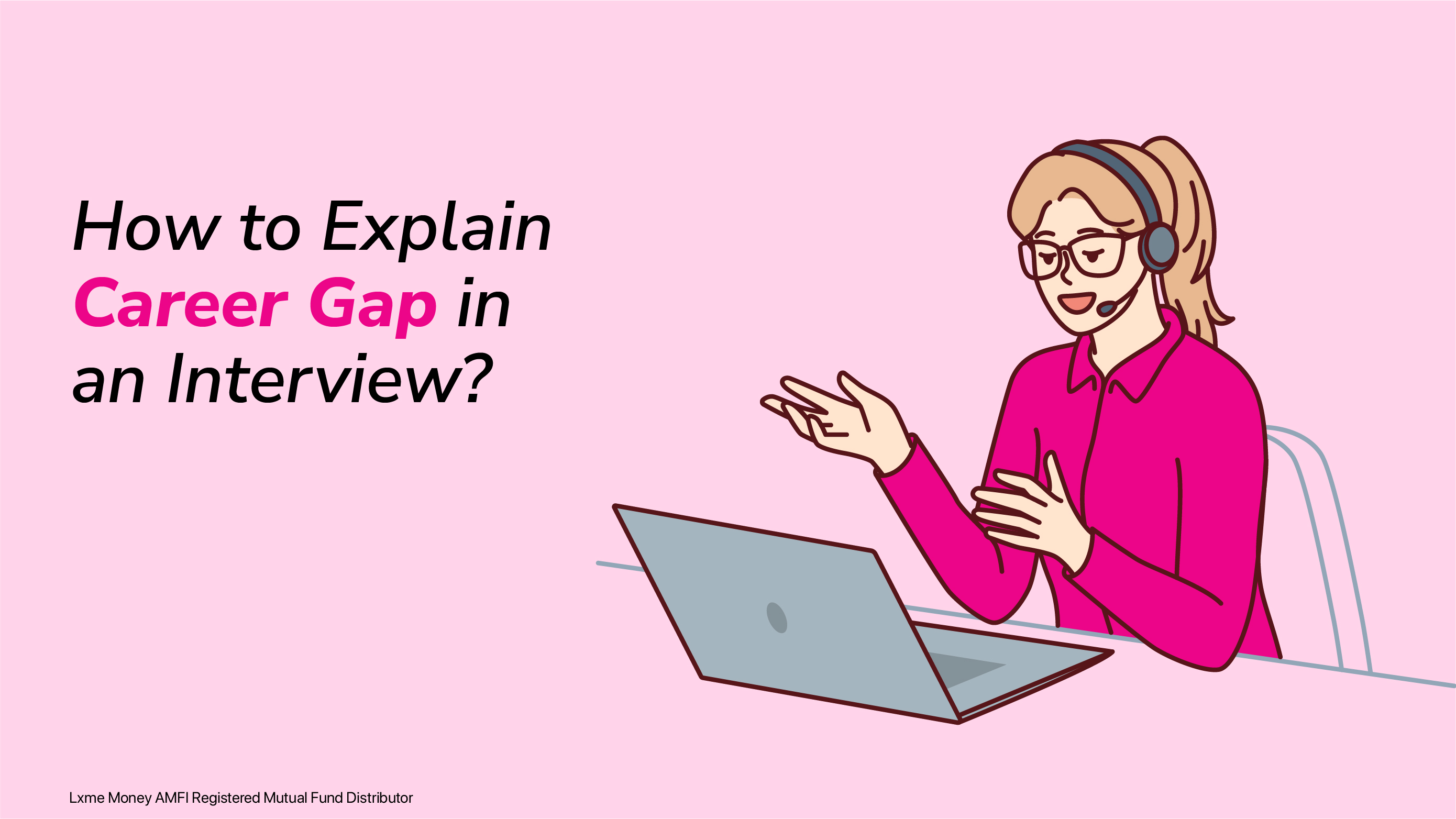(Without Apologizing for Your Life)
Let’s be real. Women’s careers aren’t always a straight line. And that is totally fine! Marriage, kids, health, caring for family; sometimes life demands you step away.
And yet, when it’s time to rejoin the workforce, you’re sitting across from an interviewer, heart pounding, wondering how to explain that career gap without sounding like you’re begging for a second chance or making up excuses. One thing is sure, you don’t owe anyone an apology. You owe yourself a seat at the table—and the career gap in your resume? It’s not a shameful secret. It’s a chapter in your story that you got to own.
But before you take a career gap, make sure you’ve got your finances in order- an emergency fund, a budget tracker, and ways to earn active and passive income. You can so all of that with Lxme, an investment platform for women.
If you’re wondering how to talk about that gap in resume without it getting awkward, we’ve got you. Here’s how you walk in:
1. Own It Before You’re Asked
When you hide something, it looks suspicious. Instead, bring it up naturally.
Mention the career gap confidently when talking about your experience. Example:
“Between 2022 and 2024, I took time off to care for a family member. During that time, I also completed two certifications to stay connected to my field.” By putting it on the table early, you control the narrative. Not them.
2. Focus on Growth, Not Guilt
A career gap isn’t wasted time. You were growing, just not in an office cubicle. Consider this fact: In a 2025 survey by LinkedIn India, 78% of hiring managers said career breaks are becoming more acceptable if candidates show personal or professional growth during that time. “During my gap employment, I developed project management skills while organizing community initiatives.” There’s no need to explain away a gap in resume like it’s a crime scene. Show what you gained.
3. Use Strong, Positive Language
Skip weak words like “I had to take a break” or “Unfortunately, I wasn’t working.” Choose words that show intention. Example: “I chose to focus on family priorities while continuing to sharpen my technical skills through online courses.” See the difference? Same facts, stronger frame. This approach gives you the best answer for career gap situations without losing your confidence.
4. Connect the Dots for Them
Don’t expect the interviewer to figure out how your gap employment experience makes you a more assertive candidate. Tell them straight up. Example: “Managing my home during this time strengthened my organizational and crisis-management skills, which are directly useful for project management roles.” Tie your life experience back to the job you’re applying for. Make it impossible for them not to see your value.
5. Prepare a One-Liner (And Move On)
Have a clean, polished sentence about your career gap ready. Deliver it without flinching, and pivot right back to your skills and achievements. Example: “After taking this gap in resume, I’m excited to bring my skills and fresh perspective to this role.” Then boom—straight into why you’re perfect for the job. That’s where you express your hard-earned and mastered skills!
Real Talk for Women in India
In 2024, women still carry 85% of unpaid domestic work in India (ILO Report, 2024). Career gaps are normal, not rare. And companies are slowly catching up. Big players like TCS, Infosys, and Amazon India now have “returnship” programs specifically to help women rejoin the workforce after a break. Your life doesn’t have to look like a perfect LinkedIn timeline. If you’re serious about getting back on the line, remember; you’re not behind. You’re right on time! It’s not about giving the best answer for career gap, it’s about staying true to your story!
FAQs:
How can you frame a career break as a period of growth?
Talk about what you learned—skills, certifications, personal development, leadership in volunteer roles. Show that you were proactive and stayed mentally engaged, even if it wasn’t formal employment. Growth isn’t tied to an office chair.
Which strategies can help turn a career gap into a strength during an interview?
Be honest, but focus on positive outcomes.
Highlight new skills or perspectives you gained.
Tie those experiences directly back to the role you’re applying for.
Show how the break made you more resilient, adaptive, and ready to contribute.
How do you effectively communicate transferable skills gained during a career gap?
Pick skills the employer cares about—leadership, time management, problem-solving. Give real examples for your gap employment: “I managed a team of volunteers,” “I balanced multiple projects while freelancing,” “I upskilled with certifications during my gap employment.” Speak their language, make it clear as water how it benefits them.
Further read:












